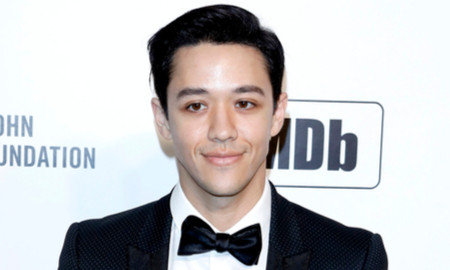Sign up for our free daily newsletter
YOUR PRIVACY - PLEASE READ CAREFULLY DATA PROTECTION STATEMENT
Below we explain how we will communicate with you. We set out how we use your data in our Privacy Policy.
Global City Media, and its associated brands will use the lawful basis of legitimate interests to use
the
contact details you have supplied to contact you regarding our publications, events, training,
reader
research, and other relevant information. We will always give you the option to opt out of our
marketing.
By clicking submit, you confirm that you understand and accept the Terms & Conditions and Privacy Policy
Iconic rock band Nirvana, LVMH-owned fashion label Marc Jacobs and art director Robert Fisher have signalled their attention to reach a settlement in a long-running dispute over the band’s smiley-face logo.
According to documents filed at a Californian district court on 9 July, the parties have agreed to mediators' proposals submitted by Magistrate Judge Steve Kim. The parties have 21 days to draw up the details of the agreement.
The original lawsuit dates back to 2018 when Nirvana accused Marc Jacobs of infringing its copyright over the unauthorised use of its smiley-face logo in the fashion house’s Bootleg Redux Grunge collection from November that year.
The Nirvana logo, which was first licensed in 1992, features Xs for eyes and a wobbly smile with a tongue hanging out.
Marc Jacobs’ version of the design featured a t-shirt that included a smiley face with the letters M and J replacing eyes underneath the word heaven.
Marc Jacobs countersued in 2019 saying there were a number of deficiencies in the case not least confusion over who actually designed the logo.
In the original lawsuit, the surviving members of the band had said that the logo was created by lead singer Kurt Cobain in 1991 and registered for copyright in 1993; Cobain died in 1994. The band said they had used the copyrighted design and logo continuously since 1992 to identify its music and licensed merchandise.
The legal battle has taken many twist and turns; in 2020, Robert Fisher, former art director of Nirvana’s record label Geffen Records, claimed he had designed it when working with the band in 1990s.
Californian district judge John Kronstadt ruled in December 2023 that if Fisher had designed it, Geffen would have owned the copyright; however, he didn’t rule on whether Cobain or Fisher retained the copyright.
Nirvana was represented by Mark S. Lee partner in Rimon’s Los Angeles office and counsel Bert H. Deixler and partner Patrick J. Somers from Los Angeles-based Kendall, Brill, & Kelly.
Marc Jacobs was represented by New York-based partner Michael J. Zinna from Kelley, Drye & Warren.
Robert Fisher was represented by attorney Inge De Bruyn from Modo Law in Los Angeles.
Email your news and story ideas to: [email protected]














